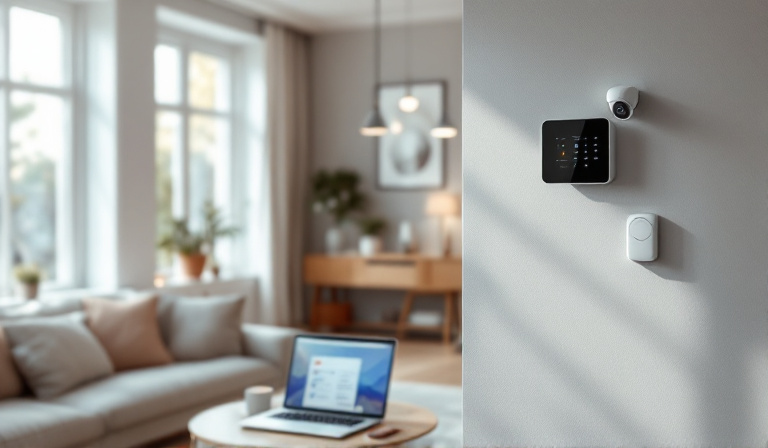
Ensuring the safety and security of your home is a priority that many of us share. However, choosing the right security system that aligns with your lifestyle and budget can be a daunting task. With a myriad of options available, it’s crucial to make an informed decision that meets your specific needs. In this guide, we will walk you through the key factors to consider when selecting a security system that is both effective and affordable.
Understanding Your Security Needs
The first step in choosing a security system is to assess your specific security needs. Different households have different requirements based on location, property size, and personal preferences. Consider the following questions to help define your needs:
- What are the primary security concerns in your neighborhood?
- Do you travel often, leaving your home unattended?
- Are there specific areas in your home that require more security?
- Do you have pets that could trigger false alarms?
By understanding your unique requirements, you can narrow down the options and focus on systems designed to address those specific issues.
Types of Security Systems
Security systems come in various forms, each offering different levels of protection. Here are some of the most common types:
- Monitored Systems: These systems are connected to a monitoring center that alerts authorities in case of a breach. They offer peace of mind but usually come with monthly fees.
- Unmonitored Systems: These rely on loud alarms and notifications to deter intruders. They are generally cheaper but require you to contact authorities yourself.
- Wireless Systems: Easy to install and often portable, wireless systems are a flexible choice. They can be expanded with additional sensors and cameras.
- Wired Systems: Known for reliability, these systems require professional installation and are less prone to interference.
Features to Consider
Once you have a general idea of the type of system you need, consider specific features that will enhance your home security:
- Surveillance Cameras: Essential for monitoring your property, cameras can be installed both inside and outside. Look for high-resolution options with night vision capabilities.
- Motion Sensors: These can detect movement and trigger alarms. Ensure they are placed strategically to cover vulnerable areas.
- Smart Home Integration: Many modern systems can be integrated with smart home devices, allowing you to control your security system remotely through apps.
- Environmental Sensors: Consider additional sensors for smoke, fire, and carbon monoxide to provide comprehensive protection.
- Alarm Systems: An audible alarm can deter intruders and alert neighbors to suspicious activity.
Budget Considerations
Budget is a significant factor when choosing a security system. Here are tips to keep costs manageable:
- Set a Realistic Budget: Determine how much you’re willing to spend upfront and for ongoing monitoring services.
- Compare Different Providers: Research various companies for competitive pricing. Look for discounts or bundled packages that offer better value.
- DIY vs. Professional Installation: DIY systems can save money on installation fees, but professional setups offer expert placement and configuration.
- Opt for Scalable Systems: Choose a system that can be expanded over time, allowing you to add more devices as your budget allows.
Research and Reviews
Before finalizing your decision, conduct thorough research. Read reviews and testimonials from other users to gauge the reliability and performance of various systems. Pay attention to any recurring issues or red flags that might indicate a less-than-ideal product.
Professional Consultation
If you’re unsure about the best system for your home, consider consulting with a security expert. They can provide insights based on your specific circumstances and offer recommendations tailored to your needs.
Installation and Maintenance
After selecting a system, the next step is installation. If you opt for professional installation, technicians will ensure that everything is set up correctly. For DIY systems, follow the manufacturer’s instructions carefully to avoid any potential issues.
Regular maintenance is also crucial to keep your security system functioning optimally. Test alarms and sensors periodically, and replace batteries as needed. Staying on top of maintenance ensures your system remains reliable when you need it most.
Conclusion
Choosing a security system that fits your lifestyle and budget requires careful consideration of your needs, the types of systems available, and your financial constraints. By taking the time to evaluate these factors, you can select a system that provides peace of mind, knowing that your home is well-protected. Remember, the best security system is one that not only fits your budget but also seamlessly integrates into your daily life.

